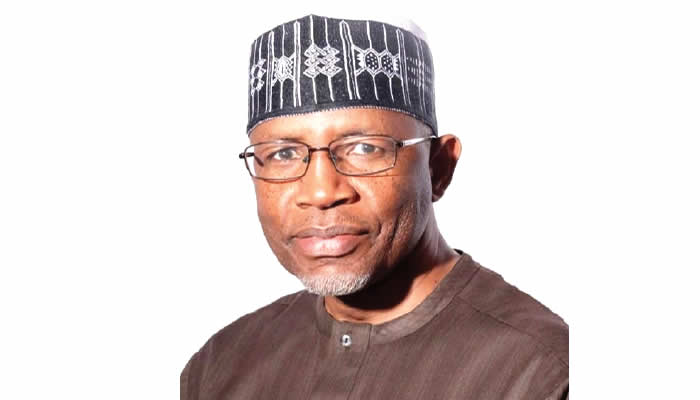
Despite several funding interventions for Micro, Small and Medium Enterprises in the continent, African small businesses are still struggling with access to capital required for growth and expansion. UTHMAN SALAMI writes on how securities trading may tackle the protracted funding challenge African MSMEs
The African Exchanges Linkage Project, comprising over 2,000 listed companies across five countries’ exchanges and valued at nearly $2tn, presents a feasible funding option to support African Micro Small and Medium Enterprises in need of assistance.
The World Bank highlights the crucial contribution of small businesses to the economies of developing and emerging nations. Small and medium enterprises are a crucial part of the private sector, serving as a source of livelihood for millions of people across the continent through both formal and informal employment. Small businesses play a crucial role in driving economic growth and serve as a paramount gauge of a country’s economic stability.
According to the African Development Bank Group, West Africa alone has 44 million small businesses, which are majorly micro. Recently, the group said it would channel $150m as a fund to help small and medium enterprises through financial institutions across Africa that would enhance financial inclusion while also addressing other issues.
Despite the AfDB and others’ interventions, funding challenges have continued to stifle the potential of the continent’s small and medium businesses.
With no sufficient accesses to capital, small and medium businesses are struggling to make the many investments needed for growth and expansion, one of the reasons which has made it stagnant for a long time.
Cross-border trading is not strange to the continent. So, exploring intra-African financial markets to raise capital for small firms may be a veritable option. And having tried several interventions in recent times, the continent may need to begin to look at the direction of capital market to fund small businesses in the continent.
The adoption of the African Continental Free Trade Area Agreement, which commits countries to remove tariffs on 90 percent of goods, progressively liberalise trade in services, and address a host of other non-tariff barriers and the African Exchanges Linkage Platform have opened the window for the investors to grow the small and medium scale businesses within the continent’s exchanges.
More importantly, the transborder trading, using the capital markets and other fixed instruments across the seven African countries remains a long-awaited solution that will enable Africans invest in indigenous small businesses across the border. The platform, which is a flagship project of the AELP and the AfDB, will hasten the growth of small businesses through the cross-border trading of securities in Africa.
Currently, the seven exchanges participating in Phase 1 of the AELP are Bourse Regionale des Valeurs Mobilieres, Bourse de Casablanca; The Egyptian Exchange; the Johannesburg Stock Exchange; the Nairobi Securities Exchange, the Nigerian Exchange and the Stock Exchange of Mauritius.
This inter-entwined platform will further strengthen the AfCFTA agreement by trading in fundraising instruments and other listed securities across the exchanges in the continent through stocks and bonds.
With the current technological advancement, trading in securities such as bonds, equities, commercial paper and other fixed market instruments can be a means of invigorating the small businesses in the continent, providing them with the capacity to expand across the coasts. And since the agreement to excise all the barriers capable of rendering the small business expansion helpless is already in place through the AfCFTA, micro, small and medium businesses will witness an unprecedented turnaround in the years to come.
Through this, an average African low-income earner can invest their savings in African-listed small businesses. And in turn, recoup either short-term or long-term dividends.
In the Nigerian bourse, for instance, an Alternative Securities Market, otherwise known as ASeM, is designed for local emerging and small businesses that are already trading daily. Other exchanges in the linkage can also take the initiative and develop financial securities for small businesses to ensure the sector is captured in the scheme of growth.
With this, traders in securities and investors in Egypt can grow and own a business in Nigeria without necessarily visiting the country.
Speaking with our correspondent during a phone interview, the Vice President of High Cap Securities, David Adonri, said African MSMEs, including the government would enjoy massive benefits from the financial markets across to continue through the linkage project.
Adonri said, “The platform is part of AfCFTA and AfDB’s move to link all the capital markets across the whole of Africa. The objective is to make the African capital markets a single capital market. Every country that has a capital market will be a participant in the project.
“When all the markets are linked together, it means, therefore, that two main purposes of the capital market can be achieved across the continent. It will serve as an investment platform, and serve as a platform for raising capital by enterprises and governments in Africa.
“This, therefore, means that enterprises that are listed in any capital market in Africa can have access to the continent’s wide capital market. For instance, a small company listed on the Emerging Market Board of the NGX wants to raise about $100 billion; it can then issue shares for an offer, with supply across Africa.”
According to him, an investor in the Gambia and Morocco could also invest in the company by buying its share and this would expand the market or investor base from which capital can be formed for any enterprise anywhere in Africa.
He claimed the project would have tremendous impact on MSMEs in Africa.
On the fear of currency challenges that may plague the platform, Adonri noted that the AfDB was already in talks with big tech firms in the continent on a seamless automatic local currency convertibility that would allow easy transactions.
He said, “AfDB is already in a relationship with fintech to enable multiple currency barriers to be crushed. The convertibility will become seamless. For instance, if an investor in Ghana wants to buy a stock in Nigeria, such an investor will pay in cedis in Ghana, which will automatically be converted to naira and the stock will be bought here in Nigeria. There is already a framework for convertibility from one local currency to the other all across Africa.”
Speaking al, a professor of Economics at Babcock University, Segun Ajibola, said radical efforts should be made to ensure that the new platform yielded the intended purpose.
He said, “It is riddled with a lot of problems because of the corporate governance issues. But at the continent level, I think it will help to deepen inter-regional stock exchange and capital market activities that will help to raise long-term capital.
“However, my fear has always been that in all these initiatives, hardly have we seen anyone that has worked out either at the sub-regional level, ECOWAS and at the AU. Unless something radical is done, the AELP will be an exemption as an alternate funding source for the MSMEs in the continent. There have always been so many inhibitions. Once these inhibitions are taken away, small businesses will largely benefit from the scheme.”
Meanwhile, the Chief Executive of the Wyoming Capital and Partners, Mr Tajudeen Olayinka, said all securities issued by the participating exchanges would enjoy alternative funding options and unhindered access to raise capital.
“When a company is admitted to the official list of a securities exchange, it means all securities issued by the company can enjoy secondary market trading on that particular securities exchange. With African Exchanges’ Linkage Platform, securities listed on one exchange can trade freely across multiple bourses on the platform.
“However, raising capital from the primary market is subject to investors’ perception of the company in terms of performance, relative to the performance of the economy. So, positive performance by the company gives it unhindered access to capital from multiple sources across Africa, with African Exchanges Linkage Platform. This is, however, subject to compliance with rules and regulations for raising fresh capital across multiple jurisdictions.
“But for a company that enjoys global acceptance, it can easily raise capital in the domestic market by attracting investors’ participation from across Africa, with the existence of the African Exchanges Linkage Platform. There are multiple benefits to listed MSMEs from that linkage platform,” he noted during a recent interview with our correspondent.
With this move by the AfDB through the African Securities Linkage Platform to seek investment and funding for African enterprises through the continent’s financial markets, the road to a single currency that will finally draw the curtain against other barriers to business growth in the continent may just be around the corner.





